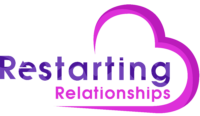You’ve learned how to hold it together.
At work, you smile, nod, and over-perform. In social settings, you laugh at the right time, make eye contact, and push down the part of you that’s quietly overwhelmed. You’ve trained yourself to read cues, to blend, to adapt.
But behind closed doors, you’re exhausted. Drained. Disconnected from yourself. You start to wonder:
- Why do I feel so tired all the time?
- Even when I’m “doing everything right”, why do I keep burning out?
- Why don’t I feel safe being myself?
This may be masking—the often invisible and exhausting effort of hiding neurodivergent traits in order to pass as neurotypical.
🎭 What Is Masking?
Masking (also called “camouflaging”) is when someone consciously or unconsciously suppresses parts of their natural self in order to meet external expectations.
In neurodivergent adults—particularly those with ADHD, autism, giftedness, or sensory sensitivity—masking can look like:
- Forcing eye contact even when it feels uncomfortable
- Smiling and laughing on cue, even when you’re anxious
- Mimicking neurotypical speech patterns or tone
- Hiding stimming, fidgeting, or movement-based regulation
- Withholding honest thoughts, reactions, or questions
- Overanalyzing social interactions to avoid rejection
- Acting “put together” while internally overwhelmed
For many, masking begins in childhood and becomes second nature. You may not even realise you’re doing it—until your body starts to collapse under the pressure.
🔋 Masking Is Not Harmless – It’s Draining Your Energy
When you spend every day managing how you’re perceived, you slowly disconnect from how you actually feel.
Masking often leads to:
- Chronic fatigue
- Burnout cycles that seem unrelated to workload
- Anxiety and self-doubt
- Sensory overwhelm from suppressing natural regulation cues
- Depression or a sense of emptiness
- Identity confusion (“I don’t know who I really am without this mask”)
- Delayed diagnosis or misdiagnosis (especially for women and gender-diverse people)
Even high-functioning or successful adults can feel a deep inner split: the version of them that the world sees, and the one quietly gasping for air.
🧠 Why Do We Mask?
Most masking isn’t conscious. It’s a learned survival strategy, often reinforced by school, family, or workplace systems that reward compliance and penalise difference.
You may have learned:
- “Don’t be so sensitive.”
- “You’re too much.”
- “Stop fidgeting and sit still.”
- “Why do you always interrupt people?”
- “Just try harder to fit in.”
Or more subtly: you were praised only when you were agreeable, high-achieving, or emotionally neutral. So you kept your edges hidden. And eventually, you forgot they were even part of you.
🔍 Is It ADHD, Autism, Giftedness, Sensory Sensitivity… or All of the Above?
Masking often delays diagnosis—especially in adults. You may be living with:
- Undiagnosed ADHD (masked by perfectionism or overcompensating)
- Autistic traits (masked through mimicking or people-pleasing)
- Twice-exceptionality (gifted + learning differences)
- Highly sensitive nervous system (sensory or emotional intensity)
- A neurodivergent identity that never had a name
Therapy doesn’t force you into a label—but it can help you understand how your brain and body really work. And that understanding? It’s liberating.
🌱 Unmasking Is Not About Exposure – It’s About Integration
You don’t have to throw away your social skills. You don’t have to reveal everything to everyone.
Unmasking means reconnecting to what feels authentic, regulated, and sustainable for you.
In therapy, we gently explore:
- Who you are when you’re not performing
- What parts of you feel suppressed, and why
- How to reconnect with your body and sensory needs
- Ways to safely stim, fidget, or move without shame
- Reframing traits like “intense,” “weird,” or “too sensitive” as strengths
- Practicing social boundaries that honour your capacity
- Rebuilding trust in your instincts, not just your performance
This isn’t about being raw or exposed—it’s about being real.
🧘 Healing the Nervous System After Years of Masking
Masking puts your nervous system into near-constant social threat mode—a subtle, chronic activation that burns out your internal resources.
Therapy supports:
- Nervous system regulation (moving from vigilance to safety)
- Somatic practices to release suppressed tension
- Sleep, nutrition, and sensory care for restoration
- Creating environments that feel safe and affirming
- Building relationships where you don’t have to mask
You learn what actually feels like rest—not just numbness or collapse.
🔄 If You’ve Been Masking for Years, You’re Not Alone
Many clients tell me:
- “I don’t know how to stop performing.”
- “I feel fake—even in therapy.”
- “I’m scared of who I am underneath.”
- “I don’t want to be seen as difficult or too much.”
These are tender truths. Therapy offers a space where those fears don’t have to be hidden—or solved right away. Just held. Honoured. And slowly, gently transformed.
👉 Ready to Explore Life Beyond the Mask?
Whether you suspect you’re neurodivergent or you’re just exhausted from constantly holding it together—this is a space where you can come as you are.
I offer neurodiversity-affirming therapy in the Sunshine Coast Queensland and beyond via secure video sessions, with in-person appointments by request.
📞Contact us to start your unmasking journey. You deserve to feel safe in your own skin.
